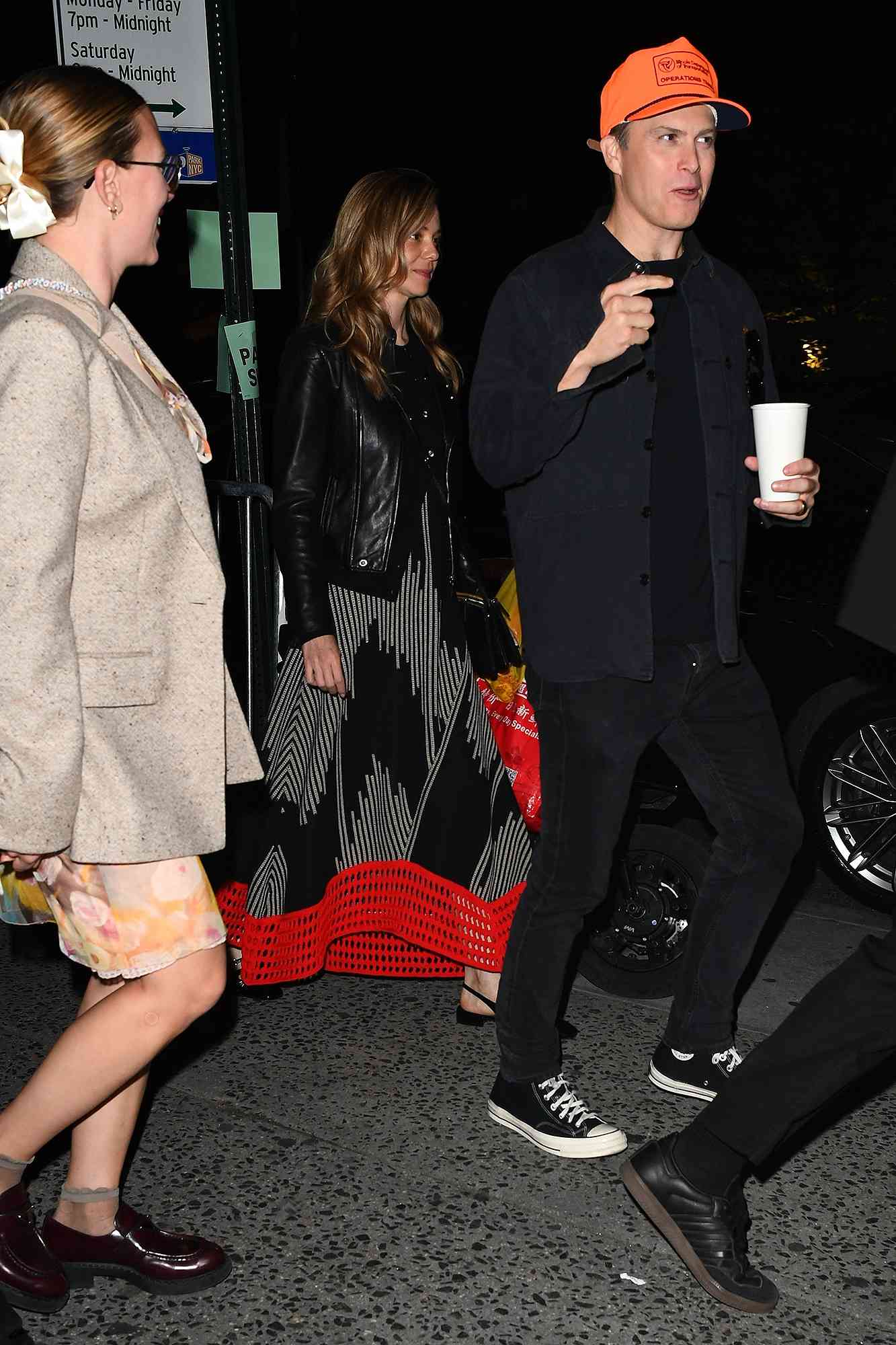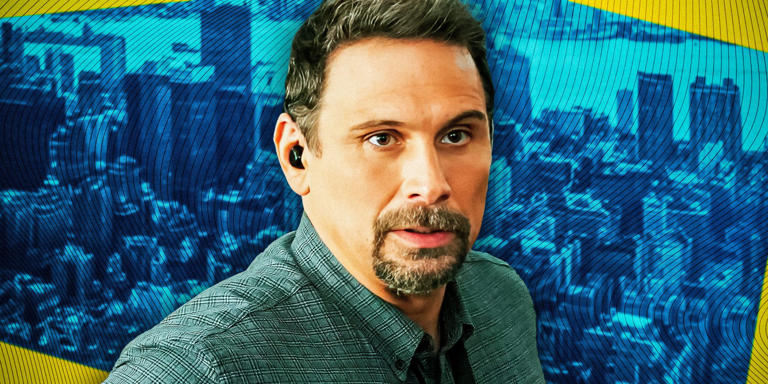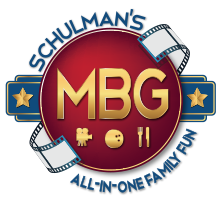Scarlett Johansson And Colin Jost Hit Back At SNL After Roast Beef Controversy

Table of Contents
The Origin of the Controversy
The controversy stemmed from a recent Saturday Night Live sketch that featured a comedic portrayal of Scarlett Johansson and Colin Jost. The sketch centered around a seemingly innocuous dinner party, but the humor leaned heavily on jokes targeting their relationship and, specifically, Jost's alleged obsession with roast beef. The jokes, while intended as lighthearted satire, were interpreted by some as insensitive and even offensive.
-
Specific examples of jokes: The sketch included jokes about Jost's supposed culinary obsession, portraying him as single-mindedly focused on roast beef to the detriment of other aspects of his life and relationship with Johansson. Another joke highlighted a perceived power imbalance in their relationship, playfully suggesting Johansson's dominance.
-
Initial social media reactions: The immediate social media response was mixed. While some viewers found the sketch humorous and in line with SNL's typical brand of edgy satire, others criticized it for being overly personal and lacking in comedic finesse. Many comments debated whether the jokes crossed a line into mean-spirited territory.
-
Prominent figures commenting: Although no major celebrities publicly commented directly on the sketch immediately, several comedy critics and social media influencers weighed in, fueling the debate and amplifying the controversy. The initial reaction laid the groundwork for a larger discussion about the boundaries of acceptable celebrity satire.
Johansson and Jost's Response
Scarlett Johansson and Colin Jost responded to the SNL roast beef sketch through a joint statement released on their respective Instagram accounts. Their response was measured but firm, expressing their disappointment with the sketch's tone and suggesting it missed the mark comedically.
-
Direct quotes: While the exact wording of their statement varied slightly across platforms, the core message was consistent: disappointment with the sketch's direction and a subtle hint of offense at the portrayal. They stated that while they appreciated the opportunity to appear on SNL, they felt the sketch lacked the wit and finesse that characterizes good satire.
-
Tone of response: Their response was primarily measured and diplomatic. While they clearly expressed their disapproval, they avoided aggressive confrontation or harsh criticism of the SNL writers or cast. The tone suggested a desire to address the issue without escalating the controversy unnecessarily.
-
Specific points addressed: Their statement focused on the sketch's reliance on tired tropes and its failure to achieve genuine comedic effect. They indirectly criticized the sketch's reliance on personal details and implied a lack of sensitivity towards their relationship.
Public and Media Reaction to the Response
The public and media reaction to Johansson and Jost's response was, again, divided. Some praised their measured and dignified approach, suggesting it was a model for how celebrities should respond to negative portrayals. Others criticized their response as overly sensitive, arguing that celebrities should expect a degree of ribbing as part of their public persona.
-
Summarized opinions: The core disagreement centered on the line between acceptable satire and offensive commentary. Some argued that SNL had overstepped its boundaries, while others maintained the sketch was within the realm of fair game for comedic commentary. The response highlighted the subjective nature of humor and the difficulty in establishing universally accepted boundaries.
-
Prominent news outlets: Major news outlets, including Entertainment Tonight, People Magazine, and several others, covered the story, furthering the conversation and contributing to its wide dissemination. The controversy became a significant talking point across multiple platforms, from traditional media to social media discussions.
-
Impact on SNL's reputation: While the controversy didn't significantly damage SNL's long-term reputation, it highlighted the potential risks involved in targeting high-profile celebrities in their sketches. The incident served as a reminder of the importance of crafting satire that is both funny and respectful.
Long-Term Implications for SNL and Celebrity Relationships
The roast beef controversy holds potential long-term implications for SNL's relationship with celebrities and the broader landscape of celebrity satire. It raises questions about the evolving nature of comedy and the delicate balance between humor and respect.
-
Potential changes in SNL's approach: The controversy might prompt SNL to reconsider its approach to celebrity roasts, prompting a more careful consideration of the potential consequences and a greater focus on genuinely humorous, rather than mean-spirited, material.
-
Impact on future collaborations: The incident could make celebrities more hesitant to collaborate with SNL in the future, creating a chilling effect on the show's ability to attract high-profile guests.
-
Broader discussion on ethics of celebrity satire: The controversy fuels a broader discussion about the ethical responsibilities of comedians and satirists in a world increasingly sensitive to issues of representation and respect. The conversation touches on the importance of understanding context and avoiding harmful stereotypes in comedy.
Conclusion
The Scarlett Johansson and Colin Jost roast beef controversy on SNL serves as a case study in the complexities of celebrity, satire, and public perception. The initial sketch, their measured response, and the subsequent public reaction highlight the subjective nature of humor and the ever-shifting boundaries of acceptable comedic commentary. The incident raises important questions about the responsibility of comedians and the expectations of celebrities in the public eye. This controversy underscores the need for a careful balance between sharp wit and respectful humor in the world of celebrity satire.
Call to Action: Stay tuned for further updates on the ongoing saga surrounding Scarlett Johansson and Colin Jost and the SNL roast beef controversy. Share your thoughts and opinions on the situation in the comments below! What are your feelings about the SNL sketch and the couple's response? Let's discuss the future of celebrity roasts and the line between comedy and offense in the comments section. #ScarlettJohansson #ColinJost #SNL #RoastBeefControversy #SaturdayNightLive

Featured Posts
-
 Brockwell Park Campaigner Wins Legal Battle Over Usage
May 19, 2025
Brockwell Park Campaigner Wins Legal Battle Over Usage
May 19, 2025 -
 Gazze Ye Yardim Tirlarin Sinira Girisi Ve Ihtiyaclar
May 19, 2025
Gazze Ye Yardim Tirlarin Sinira Girisi Ve Ihtiyaclar
May 19, 2025 -
 California Fertility Clinic Bombing Fbi Update On Suspects Fate
May 19, 2025
California Fertility Clinic Bombing Fbi Update On Suspects Fate
May 19, 2025 -
 Can Libyas Government Defeat Militias And Restore Stability In Tripoli
May 19, 2025
Can Libyas Government Defeat Militias And Restore Stability In Tripoli
May 19, 2025 -
 Final Destination Bloodline Directors Reveal Major Changes To The Franchise
May 19, 2025
Final Destination Bloodline Directors Reveal Major Changes To The Franchise
May 19, 2025
